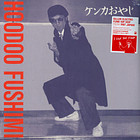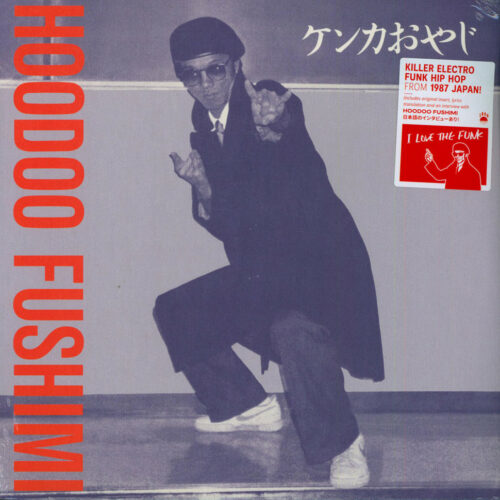»Fighting Father« is how the title of the debut album by the Japanese high school teacher Minoru Fushimi, who adopted the artist’s first name Hoodoo as a home studio producer during the 80, reads when machine-translated into English; according to other sources, »stupid old fighting men« could also be considered a possible translation. In any case, on the eponymous track which Minori Fushimi broke with in 1987 everything unfolds as if early Afrika Bambaataa has been chiefly fuelled by Chic, George Clinton and Herbie Hancock’s »Rockit!«. Time and again, Grandmaster Flash’s »The Message«, then Cybotron’s »Clear« appear not far away. Fushimi also sings and raps his own vocals, often using a Talkbox, as was last heard on Zapp’s first four albums. He also played or programmed all the instruments himself – from the long-necked Shamisen lute to the electric guitars and basses to the Casio, Roland and Yamaha synthesisers. In some respects – the over-affirmation of the superhero role borrowed from the comic, together with the associated private mythology and idiosyncratic specificity of his self-created art figure, in contrast to the escalation in volume of the relentless punching of the drum machines, which appears as the lead voice, striving towards the maximum – Fushimi’s electro-funk interpretation is reminiscent of one of the other great solitaires for whom this genre seems predestined: Greg Broussard aka The Egyptian Lover, who shortly before had carved out some early, still totemic monuments in this founder-era scenery. With »Ai Wa Nohshintoh« and »Kanashiki Machimusume« there are two Balearic Italo-Disco ballads on top. The equiaffinity to disco, hip-hop, hi-NRG, synthwave pop and funk rock is decisive throughout. The first reissue since the first release in 1987 affords nothing less than the opportunity to get to know the Japanese electro-funk and hip-hop pioneer with this near genius, synoptic milestone of his.

Kenka Oyaji

